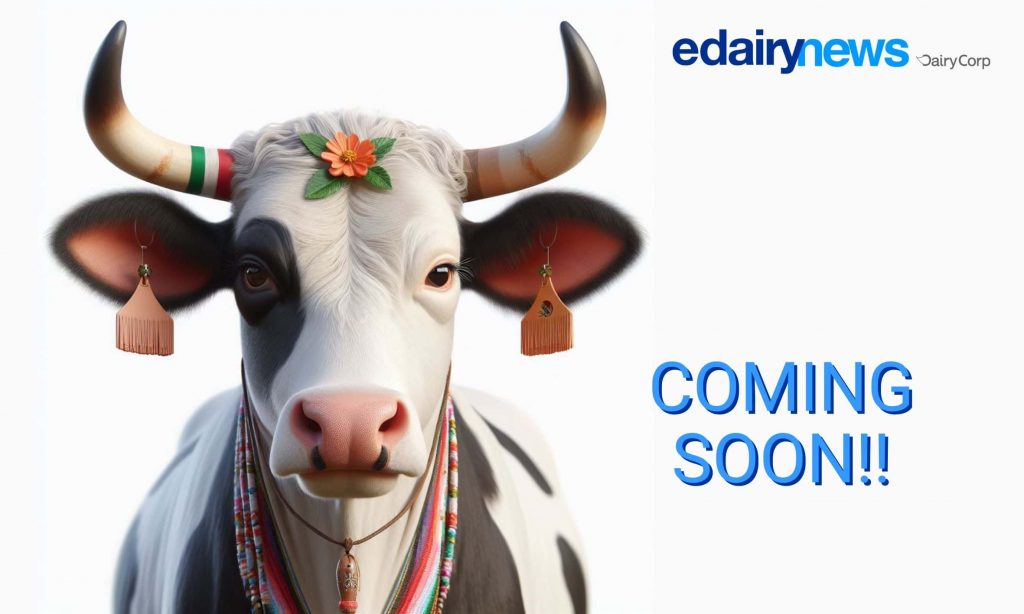TikTok influencers performed a kind of alchemy in recent weeks when they created ice creams, dips, cookie doughs and other craveable snacks from the distinctly non-craveable 1950s diet food your grandma used to eat: cottage cheese. The #cottagecheese trend has garnered well over half a billion views and have driven up product sales 15.9% to $1.2 billion.
But what appears to be a boon for dairy producers may in fact be a short-term distraction for an industry that needs much more than TikTok to survive. The social media blitz comes at a time when the dairy industry should be embracing long-term solutions — in particular, a suite of next-generation, climate-smart innovations that are quietly emerging.
For now, dairy companies from Organic Valley to smaller startups such as Good Culture are, in part, buoyed by the TikTok trend, but the #cottagecheese phenomenon is still new and could inevitably wane like crazes in the past (think Pink Sauce), generating supply-chain bottlenecks and quality-control headaches rather than enduring sales for producers.
The dairy industry bears the burden of a uniquely inflexible production timeline. Farmers can’t rapidly scale up or down milk flows in response to shifts in demand. The size and productivity of a dairy cow herd must be decided years in advance, owing to basic biology: The gestation period for a cow is 9 to 11 months; it takes at least 18 months before new calves can be impregnated and even longer for them to produce milk.
The dairy business is also labor intensive, with a relentless schedule of monitoring and milking the herds. It also requires access to lots of water and huge swaths of land. Each lactating cow consumes about 30 to 50 gallons of water per day (a costly challenge in water-stressed California, where the majority of American dairy is produced) plus 120 pounds of food often derived from corn and alfalfa — water-intensive and often compromised crops.
Soy, nut and oat milks have notable advantages: Cow-based dairy generates about three times more greenhouse gas emissions than plant alternatives, requires about 10 times more land and consumes up to 20 times more freshwater. While dairy milk consumption recently reached an all-time low, plant-based milk sales are estimated to surge from $2.5 billion in 2020 to $16.8 billion by the end of 2023.
But these products have considerably lower protein content than their animal counterparts. And even as demand for cheeses, yogurts and ice creams grows, the plant-based versions of these products can have disappointing textures and aren’t as popular as dairy-based alternatives.
Also, while converting dairy farms to almond and oat milk production has become a popular path for some farmers, many people have condemned plant-based milks as nutritionally inferior products.

So how can traditional producers stay in business for the long term?
The answer may lie in an innovation known as “precision fermentation,” a process pioneered by the startup Perfect Day Inc. through which milk proteins are produced in large fermentation tanks. Perfect Day has developed microflora (also known as yeasts, fungi and bacteria) that function like miniature factories cranking out proteins identical to those found in dairy milk. These proteins are the core ingredients for products that taste almost indistinguishable from cow’s milk and can be converted to virtually any derivative product, including – you guessed it – cottage cheese.
I’ve visited Perfect Day’s Berkeley, California, laboratories and sampled their animal-free chocolate ice cream. It looked, tasted and melted exactly like a scoop of good old Häagen-Dazs.
It follows that precision fermentation has been attracting huge investment. Perfect Day garnered approval from the Food and Drug Administration for its process in 2020 and has raised $750 million since its 2015 founding. Its newer competitors, Australia-based Change Foods and Israel-based Remilk, have raised seed funding. This bourgeoning industry is somewhat analogous to cultured meats, but Perfect Day co-founder Ryan Pandya described his product to me as the “Intel Inside” of future dairy. His business-to-business model produces proteins that function as building blocks for dairy products produced by other brands.
Perfect Day’s product begins as a protein broth that’s filtered and dried into a powder that can be blended into other ingredients — not as a replacement but as a supplement — retaining the nutrition and creating the creamy texture and mouthfeel of conventional dairy. It functions somewhat like ethanol in that it can go virtually undetected in the blend. But whereas ethanol is an environmental liability, precision fermentation is a climate win — crucial for an industry struggling to reduce its carbon footprint while also grappling with environmental stresses on their thirsty, heat-sensitive herds.
A recent product lifecycle analysis commissioned by Perfect Day found that its product generates 91% to 97% less greenhouse gas emissions than traditional dairy while using roughly 99% less water and burning up to 60% less energy. That’s why Nestle, Mars, Starbucks and Bel Brands (makers of Laughing Cow), have partnered with Perfect Day to help reach their environmental, social and governance goals. Its proteins can be found in products from chocolate bars to cream cheeses in 1,400 stores worldwide.
“We don’t want to disrupt the dairy industry — we want to keep it alive,” Pandya told me.
I’ve spoken to more than one next-generation farmer who’s open to the idea of converting from dairy farming to dairy brewing. Going forward, there will be tremendous value in creating products almost identical to animal-based dairy using climate-smart methods. The transition will certainly be a far greater undertaking than riding the latest TikTok trend, but it’s a leap they should be willing to take to survive.















